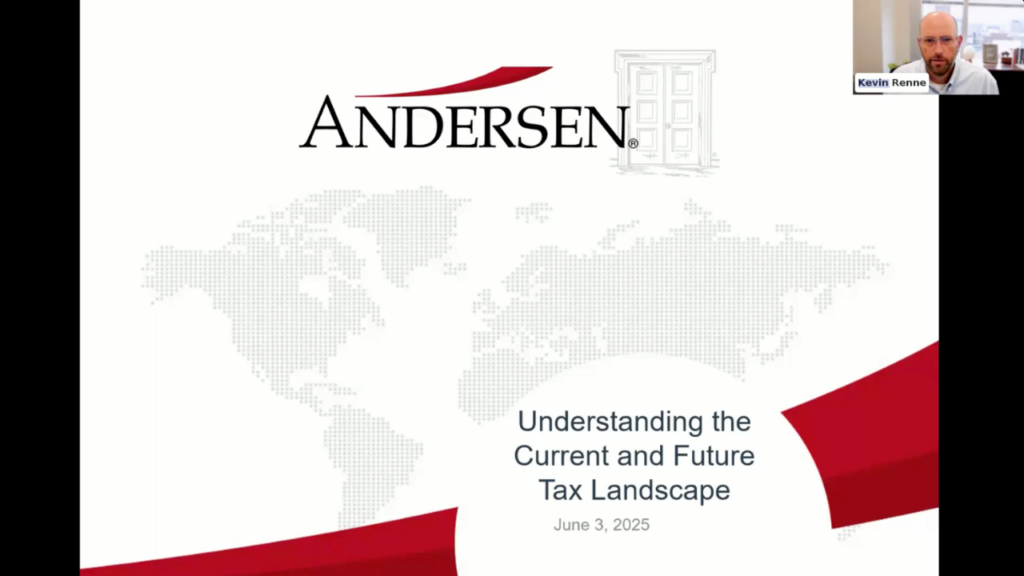Many of us establish New Year’s resolutions focused on general health and well-being. That’s great, but this is also a perfect time to incorporate a few financial goals for 2025! After all, financial stress and mental health are closely related.
I will go exercise more! This is a common resolution for many and may involve joining a gym and committing to a regular workout regular routine. Similarly, from a financial perspective, setting up a recurring savings habit can also be a good goal. This can be accomplished by increasing an employer pre-tax retirement contribution or simply making monthly withdrawals from your checking account to an investment fund.
Before we exercise more, what do we do? To get the best benefit from our new resolution, we analyze what we have been doing, review alternatives, or consult with a nutritionist or exercise professional. The same could be said for your financial goals. Start with the review of your prior budget (if any), determine what is realistic, analyze expenses, and consult with a tax or financial professional. The point in both cases is to review where you have been and set up a plan that is achievable.
So, as you consider your financial “resolutions” for 2025, here are several ideas to consider:
Pay off Debt
Paying off debt is about more than money. Reducing your debt has the potential to significantly improve your health and overall quality of life. The final decision to pay off debt involves prioritizing those loans with the highest interest rate and fees (often, credit cards fall into this category). To feel a sense of accomplishment, pay off your smallest debts first; this can be a great way to launch your plan. Then, you can add the amounts you were paying on those loans to the payments on your other debts for a “cascading” payoff effect. Paying down debt will also help improve your credit score.
Create a budget
If you already have one, review it to see how you managed your income and expenses from the prior year. If you do not have one, create one for 2025. A budget is a guide that keeps you on the path to reach your financial goals. Budgeting keeps your finances under control, shows when you need to adjust your spending, and helps you decide where your money goes instead of wondering where it all went. In other words, a budget is a tool that puts you in control.
Review investments
We invest our money to achieve financial goals and peace of mind. As we get older and experience more life events, many of the financial goals, especially the long-term ones, may change. So, it’s important to periodically review your financial goals, such as retirement, to determine if you are still on track. You need to take a look at your investments, asset allocations, and of course, savings. It is important to understand how your money is invested and also to remember the importance of diversification across asset classes (stocks, bonds, real estate) to manage risk.
Start an emergency fund
An emergency fund is crucial, because it acts as a financial safety net, allowing you to cover unexpected expenses like medical bills, car repairs, or job loss without resorting to high-interest debt, thus providing peace of mind. A good target might be to build and emergency fund of 3–6 months of living expenses.
Risk Management – Review Insurance Coverage
Regularly reviewing your insurance policies is crucial to verifying you have the right coverage at the optimal price. Life events can significantly impact your insurance needs, so it is important to stay informed and adjust as necessary. As you look at your life insurance, consider life changes—such as a birth, divorce, remarriage, or even a new mortgage or new job. These may be indicators that you should update your life insurance policy or, at the very least, that you should review your policy and beneficiaries. Homeowners should update the home inventory and make sure your homeowner’s or rental policy is up to date and adequate to cover potential losses. Tell your auto insurer if there are any changes in your driving habits or if you moved or switched jobs, either of which may impact commute time. These details can save you money. Review your policy declarations and riders to see what is included in your insurance policies and determine if the coverages are adequate or perhaps no longer necessary.
Increase retirement savings
Prioritizing saving—and the earlier the better—can set you on a path to living your best life in retirement or perhaps even an early departure from the workforce. A good retirement savings goal for 2025 could be to increase amount contributed to an employer retirement plan and/or to contribute to a traditional or Roth IRA. A possible next step might be to increase your payroll deduction to your employer retirement plan contribution by 1%. Every little bit helps, and the longer you have until retirement, the greater the compounding and growth effects you will enjoy.
Reduce unnecessary expenses
Going back to the budget concept, reducing unnecessary expenses is crucial, because it directly improves your financial health by increasing personal cash flow, allowing for greater investment in other areas, and contributing to long-term financial stability. Instead of drastically cutting expenses, start by identifying and eliminating one small, unnecessary expense each month. Simple examples might include eliminating three subscriptions you do not use. Bring lunch to work two times per week or reduce the coffee that you purchase and instead make it at home. Small changes can add up to big savings.
Build your personal financial knowledge
Financial literacy refers to the knowledge and skills necessary to make informed and effective decisions regarding the use and management of money. This includes understanding basic financial concepts such as budgeting, saving, investing, and managing debt. This knowledge will allow you to have more enriching and effective discussions with your financial and tax advisors. Your financial and tax advisors may also be able to provide written content and webinars that may help add to your knowledge. Also, it is always a good idea to reach out for advice and guidance with your advisors.
Set specific goals
Speaking personally, setting specific goals helped me focus and achieve more than I ever thought possible. Although I still have a long way to go, my finances have improved significantly since I started this journey.
So, here is the bottom line: set specific financial goals, work towards them, and keep track of your progress. It is like having a roadmap to where you want to go and a surefire way to pave the path towards financial success.
Going back to our exercise example, when we set up physical fitness goals, most of us target weekly or monthly objectives. Similarly, financial goals can be created along the same time frames, allowing for more frequent review and focus. Short-term goals offer a series of milestones – a step-by-step system that paves a path toward your long-term goal. They give you a clear plan to achieve what may otherwise seem impossible.
Finally, whether your goals are short-term or long-term goals, try to make them SMART: Specific, Measurable, Achievable, Relevant, and Time-bound. By incorporating these concepts, you can create a robust financial plan for 2025 and beyond. And finally, remember to regularly review and adjust your plan and goals as your circumstances change.




















